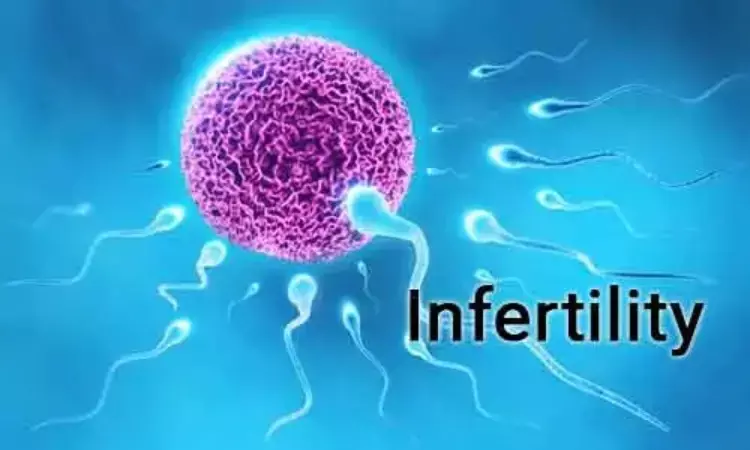- Home
- Medical news & Guidelines
- Anesthesiology
- Cardiology and CTVS
- Critical Care
- Dentistry
- Dermatology
- Diabetes and Endocrinology
- ENT
- Gastroenterology
- Medicine
- Nephrology
- Neurology
- Obstretics-Gynaecology
- Oncology
- Ophthalmology
- Orthopaedics
- Pediatrics-Neonatology
- Psychiatry
- Pulmonology
- Radiology
- Surgery
- Urology
- Laboratory Medicine
- Diet
- Nursing
- Paramedical
- Physiotherapy
- Health news
- Fact Check
- Bone Health Fact Check
- Brain Health Fact Check
- Cancer Related Fact Check
- Child Care Fact Check
- Dental and oral health fact check
- Diabetes and metabolic health fact check
- Diet and Nutrition Fact Check
- Eye and ENT Care Fact Check
- Fitness fact check
- Gut health fact check
- Heart health fact check
- Kidney health fact check
- Medical education fact check
- Men's health fact check
- Respiratory fact check
- Skin and hair care fact check
- Vaccine and Immunization fact check
- Women's health fact check
- AYUSH
- State News
- Andaman and Nicobar Islands
- Andhra Pradesh
- Arunachal Pradesh
- Assam
- Bihar
- Chandigarh
- Chattisgarh
- Dadra and Nagar Haveli
- Daman and Diu
- Delhi
- Goa
- Gujarat
- Haryana
- Himachal Pradesh
- Jammu & Kashmir
- Jharkhand
- Karnataka
- Kerala
- Ladakh
- Lakshadweep
- Madhya Pradesh
- Maharashtra
- Manipur
- Meghalaya
- Mizoram
- Nagaland
- Odisha
- Puducherry
- Punjab
- Rajasthan
- Sikkim
- Tamil Nadu
- Telangana
- Tripura
- Uttar Pradesh
- Uttrakhand
- West Bengal
- Medical Education
- Industry
Children conceived through fertility treatment more prone to birth defects

Australia: A recent study published in the Annals of Internal Medicine has suggested that patients should be counselled on the small increased risk for genitourinary abnormalities after assisted reproductive technology (ART), particularly after intracytoplasmic sperm injection (ICSI), which should be avoided in couples without problems of male infertility.
Many children are conceived through assisted reproductive technology (ART) cycles each year. Previous research has shown that children born from ART have a 25% to 50% increased risk for congenital abnormalities, particularly cardiac and genitourinary anomalies. However, it is unclear how much of this risk can be attributed to parental infertility problems compared to ART treatment.
The study of more than 850,000 children born in Australia found that parental infertility may be a factor for a small increased risk of birth defects in children conceived through fertility treatment. The authors also found that ICSI use was associated with an increased risk for major genitourinary abnormalities. However, the authors caution that the overall increase in the relative risks is small.
Researchers from University of New South Wales, Sydney, Australia, conducted propensity score–weighted population-based cohort study of 851,984 infants born between 2009 and 2017 in New South Wales, Australia. The authors found that there were approximately 40 additional cases of any major congenital abnormality per 10,000 singleton ART births compared to singletons conceived naturally to parents without prior infertility problems. This risk became insignificant when ART-conceived children were compared to children conceived naturally to parents with a history of infertility. The authors say that these findings suggest that parental infertility may partly explain the increase in risk seen in ART-conceived children. The authors also found that ICSI treatment was a risk factor for genitourinary anomalies, even in couples without male infertility. They note that these findings strongly suggest that ICSI represents an independent risk factor for congenital abnormalities and should be reserved for patients with male infertility.
Reference:
Christos Venetis, Stephanie K.Y. Choi, Louisa Jorm, BVSc, Xian Zhang, BSc, William Ledger, Kei Lui, Alys Havard, Michael Chapman, CREI, Robert J. Norman, and Georgina M. Chambers,Risk for Congenital Anomalies in Children Conceived With Medically Assisted Fertility Treatment, https://doi.org/10.7326/M23-0872.
Dr Kamal Kant Kohli-MBBS, DTCD- a chest specialist with more than 30 years of practice and a flair for writing clinical articles, Dr Kamal Kant Kohli joined Medical Dialogues as a Chief Editor of Medical News. Besides writing articles, as an editor, he proofreads and verifies all the medical content published on Medical Dialogues including those coming from journals, studies,medical conferences,guidelines etc. Email: drkohli@medicaldialogues.in. Contact no. 011-43720751


